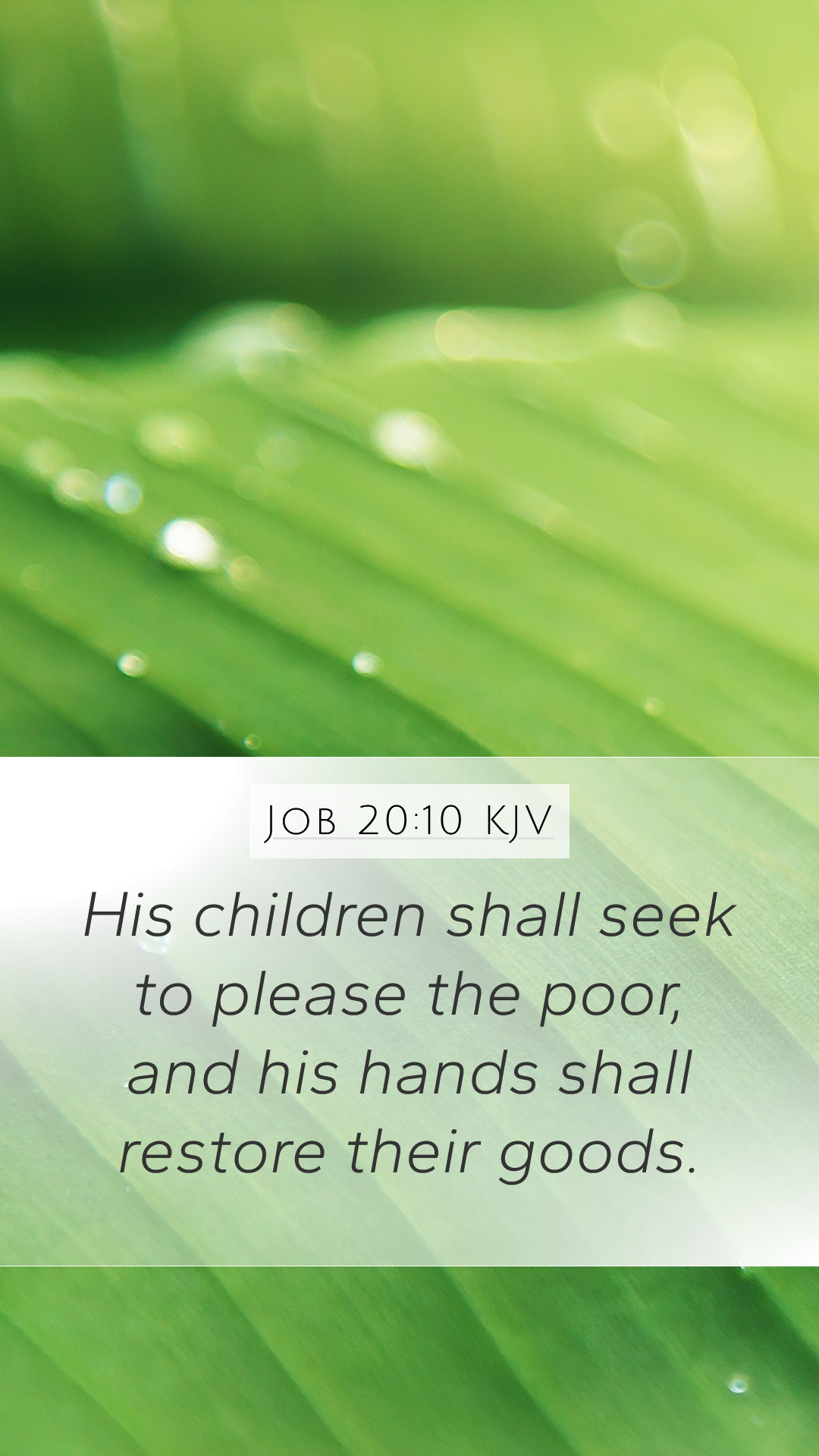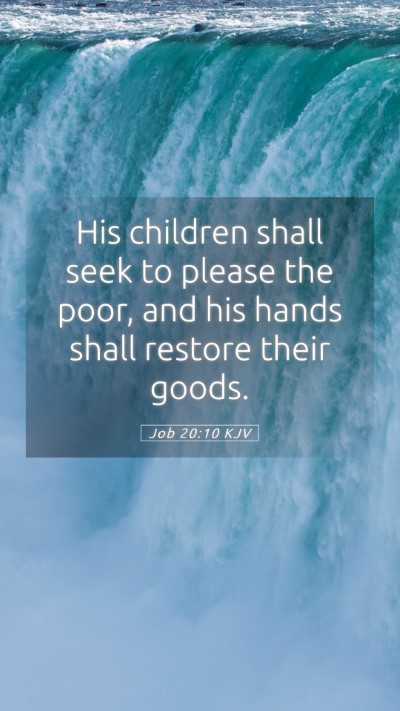Old Testament
Genesis Exodus Leviticus Numbers Deuteronomy Joshua Judges Ruth 1 Samuel 2 Samuel 1 Kings 2 Kings 1 Chronicles 2 Chronicles Ezra Nehemiah Esther Job Psalms Proverbs Ecclesiastes Song of Solomon Isaiah Jeremiah Lamentations Ezekiel Daniel Hosea Joel Amos Obadiah Jonah Micah Nahum Habakkuk Zephaniah Haggai Zechariah MalachiJob 20:10 Meaning
What is the meaning of Job 20:10?
His children shall seek to please the poor, and his hands shall restore their goods.
Job 20:10 Bible Verse Meaning
Bible Verse Explanation: Job 20:10
Job 20:10 states, "His children shall seek to please the poor, and his hands shall restore their goods." This verse addresses the fate of the wicked and the consequences that follow their actions, particularly in regard to their offspring.
Understanding Job 20:10
This verse is part of Zophar's response to Job, serving as a commentary on the eventual downfall of the wicked and the implications for their families. The essence of the verse suggests a reversal of fortunes, highlighting a key theme in the Book of Job—divine justice.
Commentary Insights
-
Matthew Henry's Commentary
Matthew Henry notes that this verse reflects the moral principle that the children of the wicked will eventually feel the weight of their parents' sins. They may find themselves compelled to seek favor with the poor, a display of humility that contrasts with their parent's arrogance. This suggests that while the wicked may appear prosperous, their legacy will be one of struggle and restitution.
-
Albert Barnes' Notes
Albert Barnes explains that this verse illustrates the judgment that will befall the wicked, emphasizing that their offspring will experience a loss and will be required to compensate others for the injustices wrought by their parents. Barnes highlights a principle of retributive justice—what is sown by the father will be reaped by the children, demonstrating God's governance in moral affairs.
-
Adam Clarke's Commentary
Adam Clarke points out that this verse suggests a shift in the social order. The children of the wicked, who may initially enjoy the ill-gotten gains of their forebears, will ultimately face consequences that lead them to support and restore to the poor. Clarke remarks that this verse serves as a warning to those who indulge in sinful behaviors, as it impacts not only themselves but future generations.
Key Themes in Job 20:10
Retributive Justice: The concept of retributing the wrongs of the wicked serves as a foundational theme in this verse, emphasizing accountability.
Social Responsibility: The verse highlights the societal expectation placed upon children to rectify the moral failures of their predecessors.
Application to Daily Life
In considering the applications of this verse, it becomes pertinent to reflect upon the influence of one’s actions not only on oneself but also on future generations. Job 20:10 underlines the importance of living a life that positively impacts others and encourages stewardship and responsibility.
Bible Study Insights
Job 20:10 provides rich material for Bible study groups aiming to delve into themes of justice, morality, and family heritage. Engaging with this verse through various Bible study tools can foster deep discussions regarding how one's choices affect their legacy and those around them.
Related Bible Cross References
- Exodus 20:5: "Visiting the iniquity of the fathers upon the children unto the third and fourth generation of them that hate me."
- Proverbs 13:22: "A good man leaveth an inheritance to his children's children: and the wealth of the sinner is laid up for the just."
- Galatians 6:7: "Be not deceived; God is not mocked: for whatsoever a man soweth, that shall he also reap."
Conclusion
Job 20:10 serves as a poignant reminder of the interconnectedness of actions through generations. As both a warning and a guide, this verse calls believers to reflect deeply on the implications of their conduct, understanding the broader context of divine justice as articulated in biblical themes.


